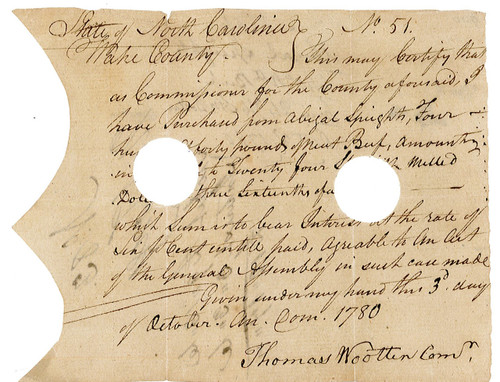The North Carolina General Assembly received petitions from veterans and surviving heirs for bounty land warrants. The legislature was also petitioned directly by other persons affected by the war--the widows and orphans of deceased soldiers, disabled and impoverished veterans, and creditors of the state whose vouchers had been stolen or accidentally destroyed. Those petitions related to a soldier's service usually give details of that service, naming the unit in which he fought and sometimes including personal data; those related to missing pay vouchers often provide detailed account of the circumstances of the loss. When the legislature acted favorably on a petition, it ordered the appropriate agency of government, usually the treasurer or secretary of state, to furnish the necessary relief. As a result, the complete file, or parts of it, might have been forwarded to the authority who paid the claim. If, however, the legislature declined to grant the prayer of the petitioner, the matter died there and the complete file remained among the legislative papers (Source: North Carolina Research, p. 393)
Many of these records are available in the Digital Collections. The General Assembly Session Records are indexed and searchable through the November-December 1796 legislative session in the catalog. Researchers may also want to consult the published House and Senate journals of the General Assembly and session laws which are available for select years in the State Archives' Digital Collection. Revolutionary era House and Senate journals and session laws are also available in the Colonial and State Records of North Carolina.






